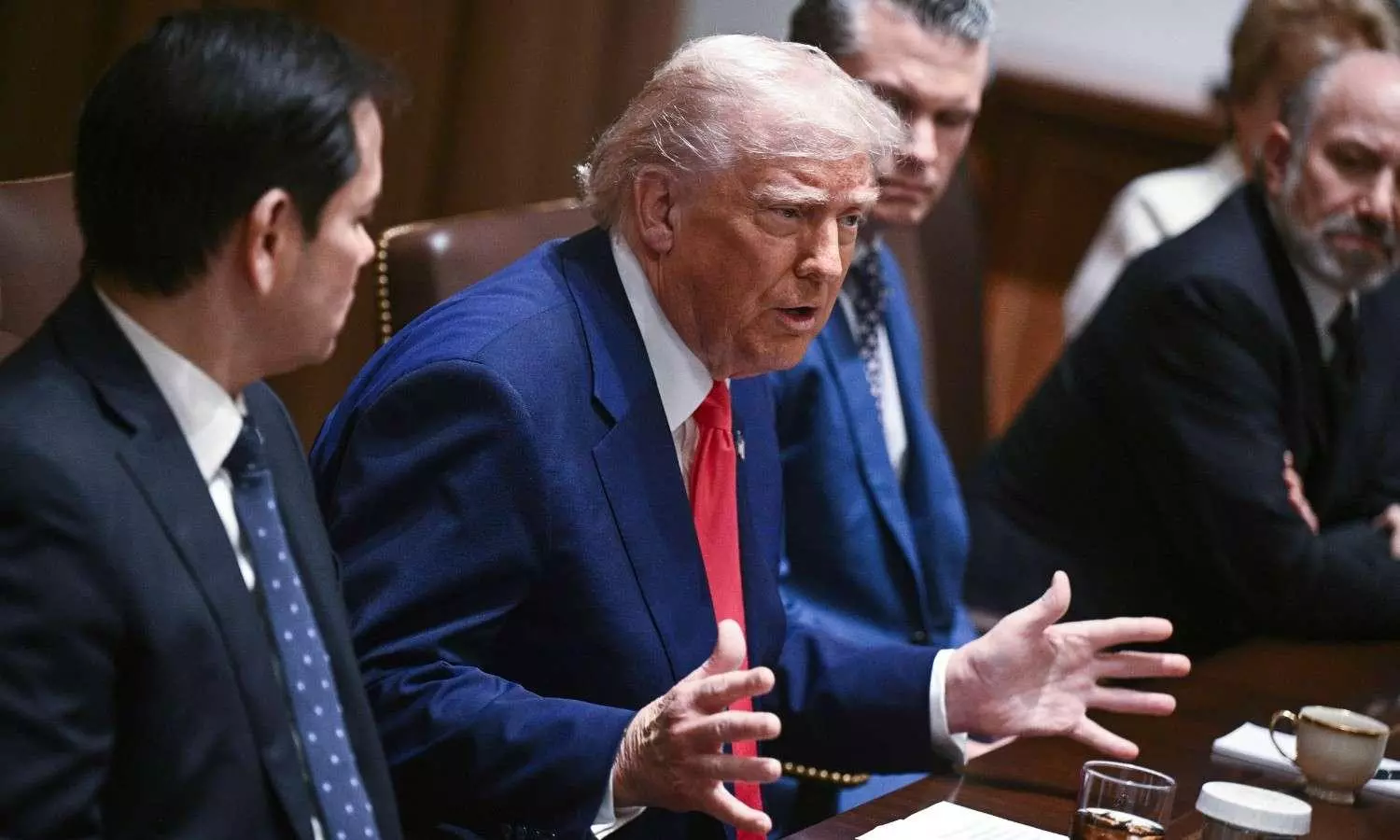
Trump ‘wants’ Iran to be a great, happy country but not have nukes
Trump’s comment comes as his Middle East envoy, Steve Witkoff, and Iranian Foreign Minister Abbas Araghchi gather in Oman for critical talks

Iran can be a “great” country but it just cannot possess nuclear weapons, US president Donald Trump has declared as Washington and Tehran open talks in Oman on its nuclear programme.
“I want Iran to be a wonderful, great, happy country, but they can't have a nuclear weapon," Trump said Friday (April 11) night aboard Air Force One as he flew to Florida for the weekend.
Trump’s emphatic comment came as his Middle East envoy, Steve Witkoff, and Iranian Foreign Minister Abbas Araghchi gathered in Oman for critical talks on Saturday.
US-Iran talks
It's unclear if Witkoff and Araghchi will speak directly.
Trump has said the two sides will have “direct” negotiations. But Iranian officials have insisted that the plan is for “indirect talks”, meaning an intermediary from Oman would shuttle messages between Witkoff's and Araghchi's teams holed up in different rooms.
Witkoff also has signalled that the administration could be amenable to a deal that is less than full nuclear disarmament.
Also read: Iran readies missiles for possible strike amid Trump's threats: Report
A warning for Tehran
“Where our red line will be, there can't be weaponisation of your nuclear capability,” Witkoff said in a Wall Street Journal interview published Friday.
Trump says he prefers a diplomatic solution to Iran’s nuclear ambitions but has made it clear that Tehran will face “great danger” if the talks in Oman don't go well.
Experts believe that Iran's nuclear advances since Trump scrapped an Obama-era accord during his first term make finding a pathway to a deal difficult.
Weakened Iran
At the same time, the prospects of US military action on Iranian nuclear facilities appear higher than they have been in years.
The White House believes that Iran is now in a weaker negotiating position as it has faced a series of massive setbacks across the Middle East.
The military capabilities of Iranian-backed proxy forces — the Hamas in Gaza and Hezbollah in Lebanon — have been dramatically degraded by Israeli forces.
Also read: Iran denies aiding Yemen's Houthis after US strikes, Trump’s warning
Iranian losses
Meanwhile, US airstrikes targeting Iran-backed Houthis in Yemen have hit oil refineries, airports and missile sites.
Israel also carried out strikes against Iran in October that damaged facilities linked to Tehran's nuclear and ballistic missile programmes. Finally, in December, Syrian leader Bashar Assad — Tehran's closest Mideast ally — was ousted after more than two decades in power.
The leaders of the Islamic Republic also face domestic pressure as years of international sanctions have choked the economy.
An expert’s view
“All eyes are on Oman by Iranians following this very closely and potentially hoping that this would impact the state of the economy,” said Negar Mortazavi, a senior fellow at the Center for International Policy, a Washington-based think tank.
Under the 2015 nuclear deal with world powers, Iran could only maintain a small stockpile of uranium enriched to 3.67 per cent.
Today, Tehran has enough to build multiple nuclear weapons if it chooses to and has some material enriched up to 60 per cent, a short, technical step away from weapons-grade levels.
Also read: We won’t negotiate, do whatever the hell you want: Iran’s President tells Trump
US investment in Iran?
President Masoud Pezeshkian pledged this week that Tehran's “not after a nuclear bomb” and even suggested Tehran could be open to the prospect of direct American investment in Iran if the countries can reach a deal.
(With agency inputs)
